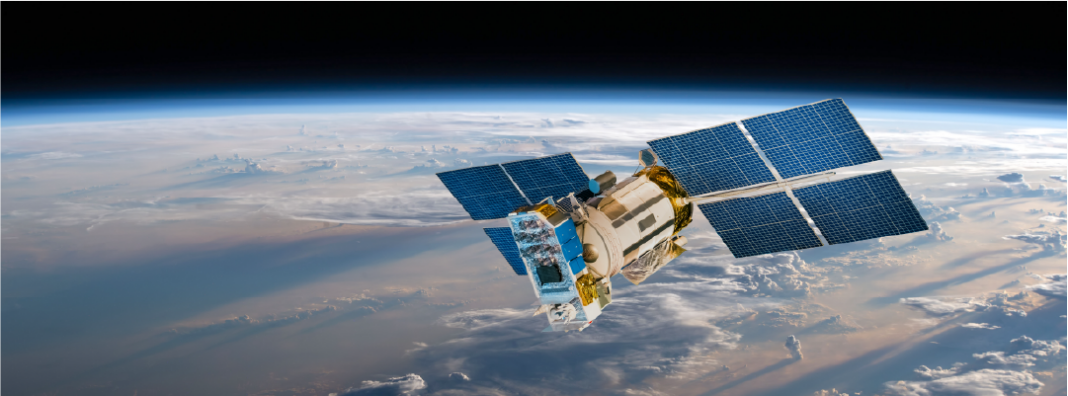
In the same way that Earth sits in the “Goldilocks” zone of our solar system, not too close to the Sun, but not too far away, Congress’s task is to find a balance on the continuum between “permissionless innovation” (where nearly anything goes) and the “precautionary principle” (where the government must micromanage and approve every activity by U.S. citizens in space). This is a hard but necessary task if the United States is to continue as a leader in the cis-lunar economy going forward.
Space is heating up — not in terms of the environment, but in terms of business activities. Advances in space technology, especially the advent of cheaper access to space thanks to a number of entrepreneurs (with strategic funding from the United States government, of course), have opened entirely new opportunities for U.S. businesses to be the catalyst for the creation of a cis-lunar economy. According to the Space Foundation, the world space economy was valued at almost $470 billion in 2021, and according to the U.S. Bureau of Economic Analysis, the U.S. portion of that economy generates $211 billion in gross output per year. And space entrepreneurs are just getting started.
But this increasing level of commercial space activity presents novel legal and policy questions, as covered in a paper recently published by the Center for Growth and Opportunity. The first problem is that we do not have a comprehensive regulatory approach to these activities. We’ve never had a National Space Act. The rules of the road have been cobbled together from various agency statutes, some with regulatory underpinnings that date back almost 150 years. The result is “gaps, overlaps, and stovepipes.”
Simply put, space is regulated by several different agencies, none of which were originally sanctioned by Congress to regulate outer space, and none of whose regulations clearly fit the new space economy. This includes the Federal Communications Commission, the Federal Aviation Administration, the Department of Commerce, NASA, and the Department of Defense, all of which currently have a hand in directing, if not directly regulating, outer space commerce.
The second problem is that following the Supreme Court’s decision in West Virginia v. EPA, it is clear that agencies may no longer regulate based on vague terms such as “the public interest.” Congress “does not alter the fundamental details of a regulatory scheme in vague terms or ancillary provisions — it does not … hide elephants in mouseholes,” the court ruled. Yet the current patchwork regulatory environment is a labyrinth of mouseholes that new entrants must traverse. This is great for practicing space lawyers, but highly dangerous for the United States as a country, because there is a very real danger that courts, when asked to review regulatory actions in the future, may well conclude that Congress never provided the basic regulatory authority to those agencies in the first place.
The stakes are sky high … pun fully intended. Space is inherently international, and if the United States does not provide a practical regulatory system that can quickly and economically authorize and supervise the activities of U.S. nationals in space in a relatively frictionless regulatory system, two things will happen. First, U.S. domestic companies will simply move offshore and find a country that will quickly and cheaply grant them authorization for their outer space activities in exchange for license fees or taxes (fees and taxes that are thus pulled away from the U.S. economy). In fact, this is already happening.
Second, the existing regulatory scheme, and any future regulatory scheme which is characterized by high degrees of friction, will slow down the U.S. space economy and thus advance the interests of our adversaries, including China, which do not share our democratic principles. The Chinese Communist Party, in particular, wishes to export its ideals into space, to our direct detriment.
All of this is important to bear in mind as Congress considers crafting comprehensive legislation regarding regulating commercial space activities.
What should a National Space Act look like? After West Virginia v. EPA,Congress should look to accomplish four goals:
- Assign clear regulatory authority to an agency or small set of agencies with minimal gaps and overlaps;
- Provide explicit rulemaking authority to that agency or agencies to create the rules of the road for space activities in the 21st century;
- Provide explicit enforcement powers to its chosen space agencies so there is a clear “cop on the beat” to ensure compliance both with domestic law and the United States’ obligations under international law; and
- Ensure that the coordination process between agencies is as transparent as possible.
In meeting these goals, Congress must find the “sweet spot” of regulation. Overregulation introduces levels of friction into the regulatory system that could accelerate flight overseas and play directly into the interests of our adversaries. Underregulation puts the “commons” of space at risk of pollution from orbital debris. Congress needs to be a good steward of the cis-lunar system.


 Washington Examiner
Washington Examiner